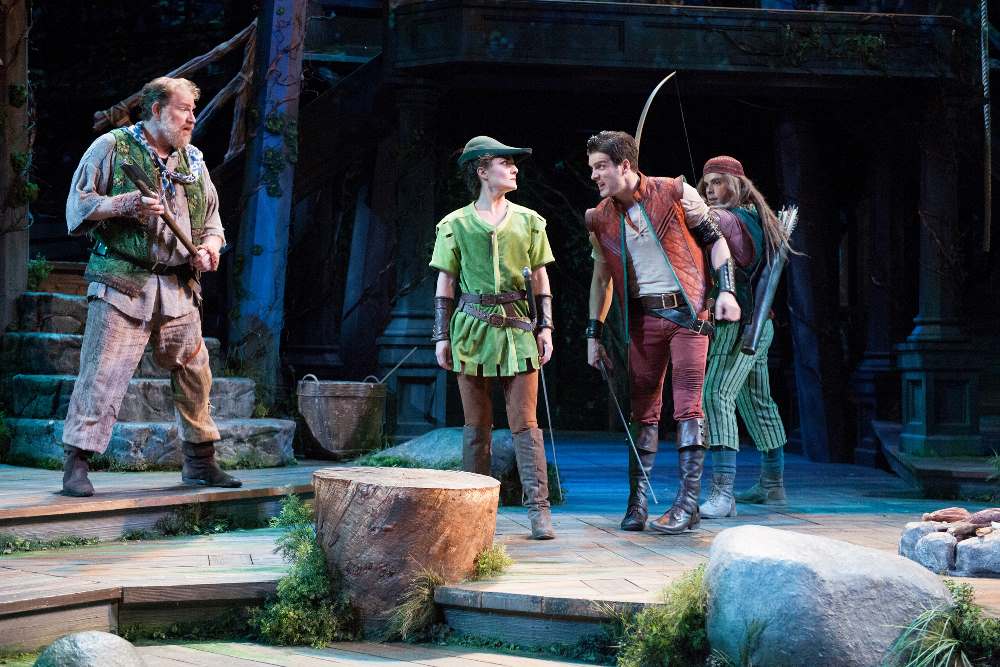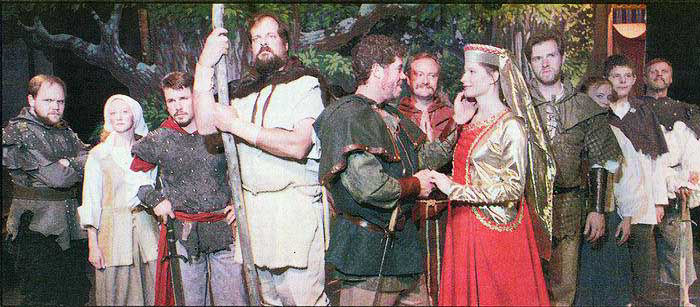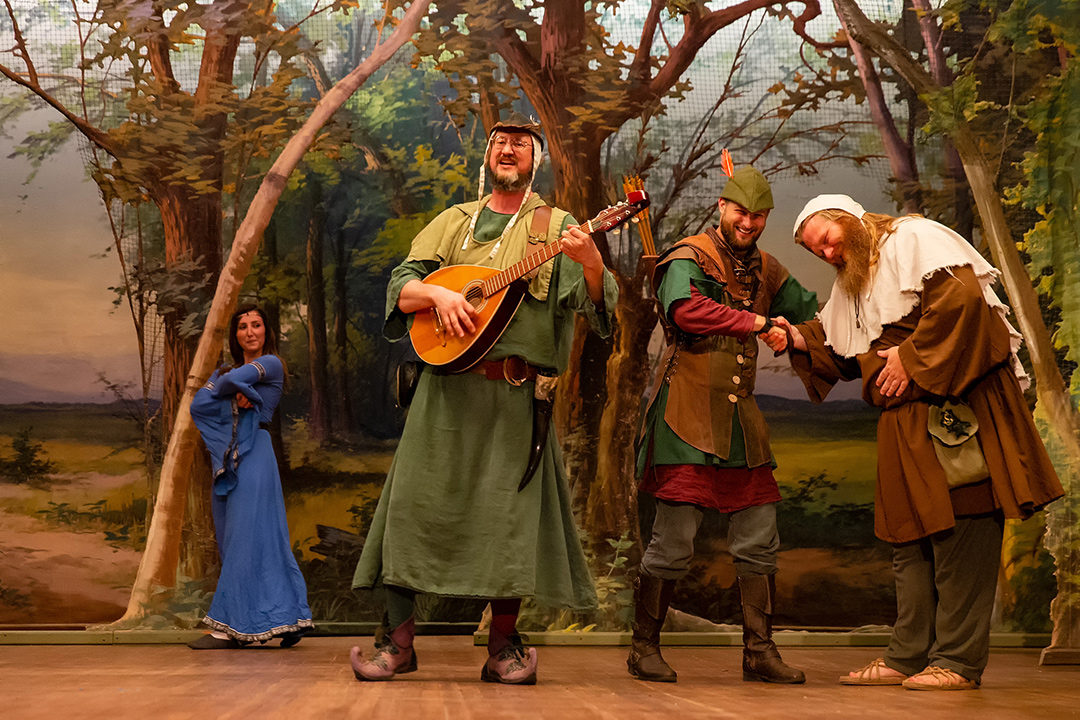

- ROBIN HOOD THE LEGEND OF SHERWOOD STAGE PRODUCTION FOR FREE
- ROBIN HOOD THE LEGEND OF SHERWOOD STAGE PRODUCTION SERIES
To protect his identity, he donned a mask that resembled a terrifying scarecrow and, together with his fellow outlaws, offloaded kegs of rum and other highly taxed goods from French and Dutch ships in the dead of night. Syn organized the men of the region into a gang of smugglers. But rather than simply stealing what didn’t belong to him and handing it to people who hadn’t worked for it, Dr. Syn, vicar of the Kent village of Dymchurch, sought to ease his parishioners’ burdens.
ROBIN HOOD THE LEGEND OF SHERWOOD STAGE PRODUCTION FOR FREE
Thorndike, who grew up in the marshes of Southern England, was well-versed in the legend of gangs of roving outlaws whose only crime was a penchant for free enterprise.
ROBIN HOOD THE LEGEND OF SHERWOOD STAGE PRODUCTION SERIES
The real-life inhabitants of the marshlands in southern England, like their descendants in Nottingham’s Sherwood Forest, were suffering under crippling taxes imposed by the British crown to pay for a series of wars waged in every corner of the globe to acquire and support its vaunted empire. And like Robin Hood, while he might not have actually existed, he was invented out of genuine economic necessity. Christopher Syn was the creation of novelist Russell Thorndike, who published his first volume in 1915.

It took 400 or so years for that lesson to sink in, but by the time another great do-gooder of English literature arrived on the scene in the late 1700s, we’d learned a thing or two about capitalism.ĭr. What we’ve discovered, much to our chagrin, is that the Robin Hood School of Economics - as wildly popular as it may be in books - doesn’t work in practice because simply giving people someone else’s stuff doesn’t reinforce the good habits one needs to earn enough money to buy their own stuff. But the real money is in making the rules that determine who gets to be which. Then as now, there are rich people and there are poor people.


are within commuting distance of Washington, D.C. Census figures, eight of the ten wealthiest counties in the U.S. And while we no longer have kings and castles, it’s certainly no coincidence that, according to U.S. That problem with that calculation, of course, was that it ignored what drove Robin to a life of crime in the first place - namely high taxes and overregulation.īut even though much has changed since the days of Medieval England, the fundamental laws of economics haven’t. Before long, he became the literary metaphor for income redistribution and the darling for centuries of those advocating for big government and the taxes needed to fund the welfare state they envisioned. Christopher Syn was the creation of novelist Russell Thorndike, who published his first volume in 1915.Īs the years went by and one storyteller endeavored to outdo all the others, however, the tale was gradually embellished to the point where Robin began sharing his booty with the poor. Giving to the poor would have been icing on the cake.ĭr. Interestingly, early descriptions of Robin Hood left out the “give to the poor” half of the equation, no doubt because, in those days, monarchs were sufficiently unpopular that just stealing from them was virtue enough. Some scholars have traced him back to a real person named Robert Hode who lived in the 1100s, but most believe that, beyond a superficial resemblance in spelling, it’s highly unlikely any real person’s exploits could rival the fictional version. John Chandler, author of “ The Robin Hood Project,” (University of Rochester, 2006) dates the first mention of the outlaw in text back to 1377, but even that was just a reference to a character already widely known in the Sherwood of Barnsdale area. “ Take from the rich and give to the poor” was resonating with audiences for hundreds of years before the legend was actually set down on paper - and not just by Karl Marx. According to Wikipedia, he’s been the subject to date of at least 72 motion pictures and television productions, not to mention countless print versions of his story.Īnd why not? He’s got the most populist motto in the business. Robin Hood may well be the most beloved rogue in all of literature.


 0 kommentar(er)
0 kommentar(er)
